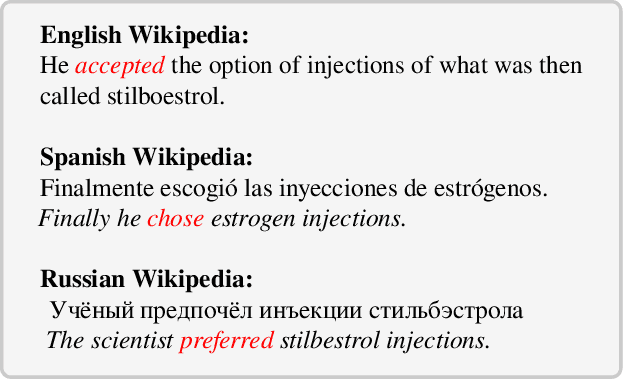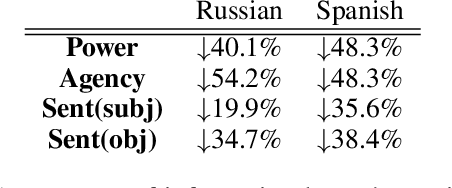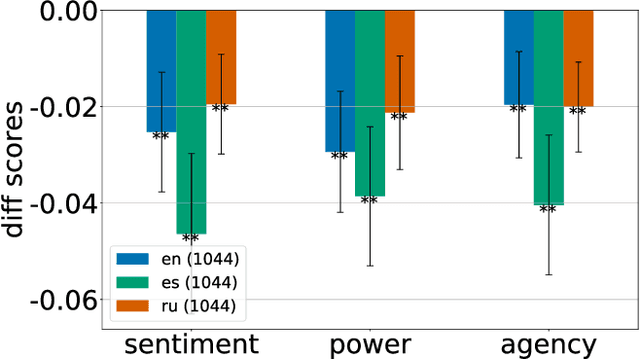Multilingual Contextual Affective Analysis of LGBT People Portrayals in Wikipedia
Paper and Code
Oct 21, 2020



Specific lexical choices in how people are portrayed both reflect the writer's attitudes towards people in the narrative and influence the audience's reactions. Prior work has examined descriptions of people in English using contextual affective analysis, a natural language processing (NLP) technique that seeks to analyze how people are portrayed along dimensions of power, agency, and sentiment. Our work presents an extension of this methodology to multilingual settings, which is enabled by a new corpus that we collect and a new multilingual model. We additionally show how word connotations differ across languages and cultures, which makes existing English datasets and methods difficult to generalize. We then demonstrate the usefulness of our method by analyzing Wikipedia biography pages of members of the LGBT community across three languages: English, Russian, and Spanish. Our results show systematic differences in how the LGBT community is portrayed across languages, surfacing cultural differences in narratives and signs of social biases. Practically, this model can be used to surface Wikipedia articles for further manual analysis---articles that might contain content gaps or an imbalanced representation of particular social groups.
 Add to Chrome
Add to Chrome Add to Firefox
Add to Firefox Add to Edge
Add to Edge